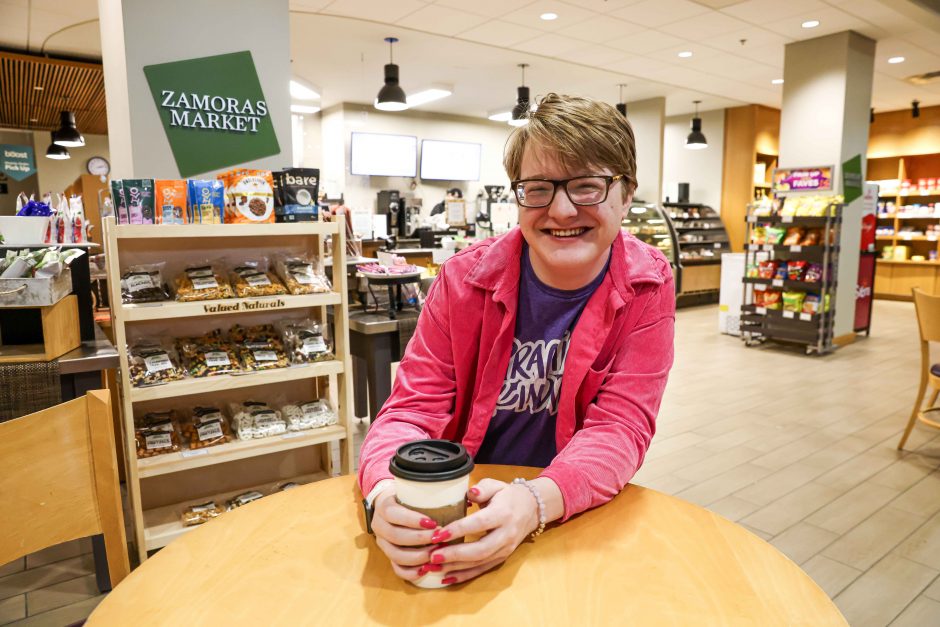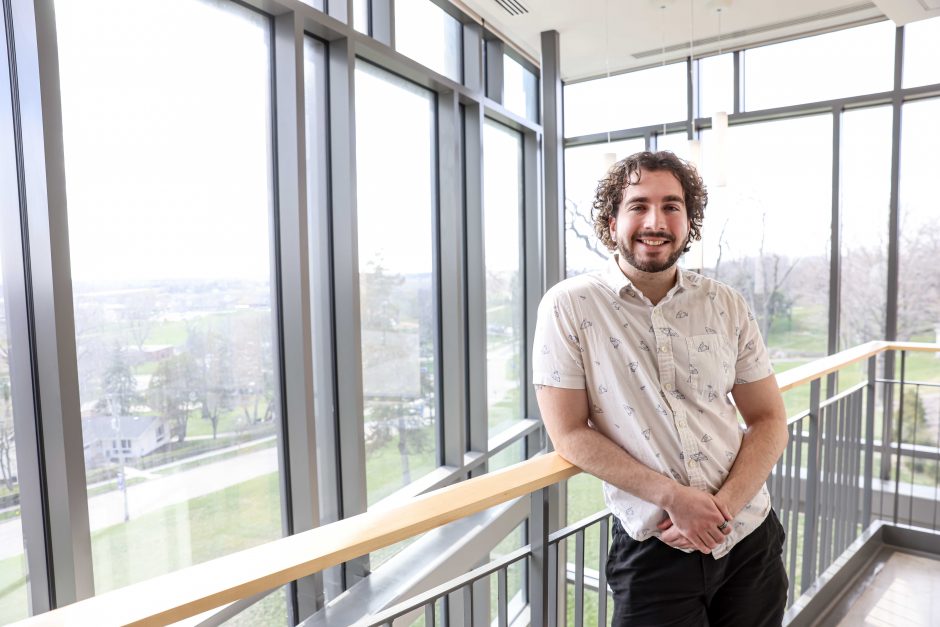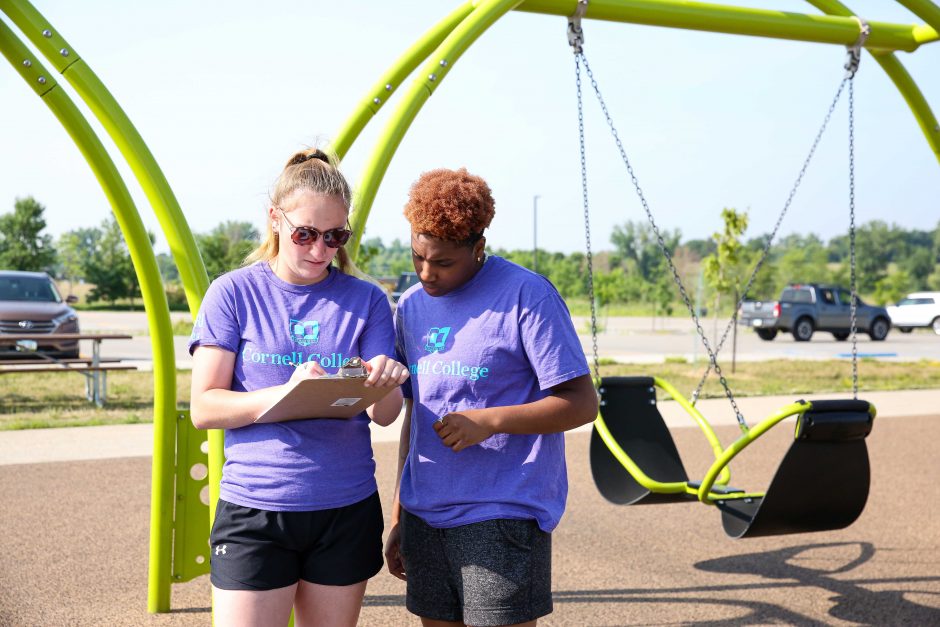Students start emergency medical response group
Four minutes into its first shift, Cornell College Emergency Medical Services got a call to assist a patient.
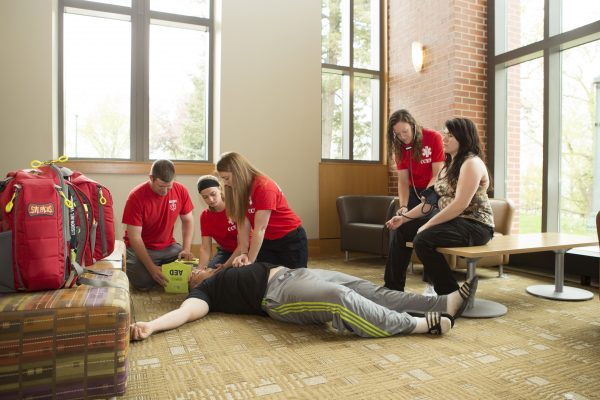 Jacob Buster ’16, who founded the organization, was surprised a call came in so quickly, but not surprised that it came at all—he knew there was a need. Mount Vernon has an ambulance service, but since it covers a large area, a satellite station can help in the event of simultaneous calls.
Jacob Buster ’16, who founded the organization, was surprised a call came in so quickly, but not surprised that it came at all—he knew there was a need. Mount Vernon has an ambulance service, but since it covers a large area, a satellite station can help in the event of simultaneous calls.
Buster is a volunteer with the Lisbon-Mount Vernon Ambulance Service and had the idea of a group dedicated to answering emergency medical calls for the campus community, especially on the weekend. It took nearly a year for the idea to take shape, but during spring 2015, seven students took an emergency medical technician course, and this fall the group officially started taking calls.
“The Cornell College EMS is a satellite first-responder station of Lisbon-Mount Vernon Ambulance,” said Julie Scadden, director of the service.
The students are full members of the service to which they have committed 36 hours per month of being on call with the ambulance, Scadden said.
“When they are on call for CCEMS on campus, their role is to make initial contact and assessment of the patient on campus and notify the responding ambulance of the patient’s condition and possibly medical needs,” she said.
There are students on call on Thursday through Saturday, from 7 p.m. until 7 a.m. the next day. They also provide assistance at major campus events, freeing the Lisbon-Mount Vernon Ambulance Service to respond to other calls.
Morgan Champagne ’17, assistant crew chief for the service, explained that the students respond to calls from 911 and head to where the problem has been reported.
“When we get on scene, the ambulance, fire department, and police are all en route to campus, so we determine what kind of patient that we have, and intervene in any life-threatening situations,” she said. “After all of that is complete, we alert the ambulance as to what’s going on at the scene, and they arrive shortly after that. We then hand off care to the ambulance and go back into service for our next call.”
Cornell’s Student Senate funding was a big part of why the EMS group was possible, Buster said.
“Senate allocated money for the group to purchase two automated external defibrillators, full-body splints and other equipment we needed to get started, and covered half the cost of tuition for the course,” he said. “We’re very appreciative of their support.”
The Lisbon-Mount Vernon Ambulance Service pays for the consumables, such as bandages, since members of the Cornell group are also members of that service.
The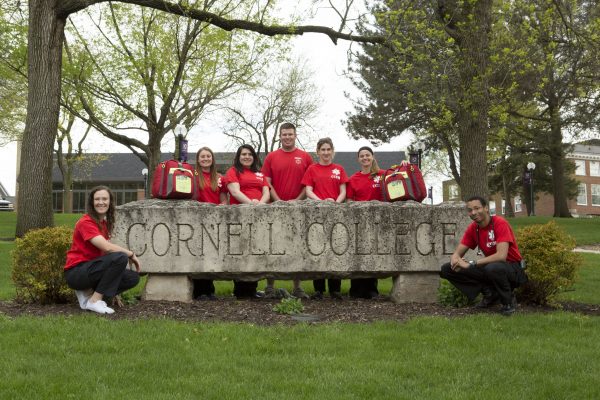 re are six students trained as EMTs, and three more whose certifications are pending. All nine have been trained to respond and are on the team. The students get to take the certification classes at no cost, and in return they owe a combined 36 hours a month to the Cornell group and the Lisbon-Mount Vernon Ambulance Service.
re are six students trained as EMTs, and three more whose certifications are pending. All nine have been trained to respond and are on the team. The students get to take the certification classes at no cost, and in return they owe a combined 36 hours a month to the Cornell group and the Lisbon-Mount Vernon Ambulance Service.
The training and the volunteer work are both big time commitments, Buster said, but worth it to him because of the outcome.
“I’m thrilled that I can get something going for the community, and especially the Cornell community,” he said.
EMS Director Scadden says the students have made a big difference.
“Cornell Students who serve as volunteers on both the Lisbon-Mt Vernon Ambulance Service and Cornell College EMS Squad have enhanced our ability to reach patients quicker, providing interventions for potentially life-threatening conditions, as well as emotional support and compassion for the patient’s time of need,” she said. “Their value to the communities of Mount Vernon, Lisbon and Cornell College are immeasurable.”

